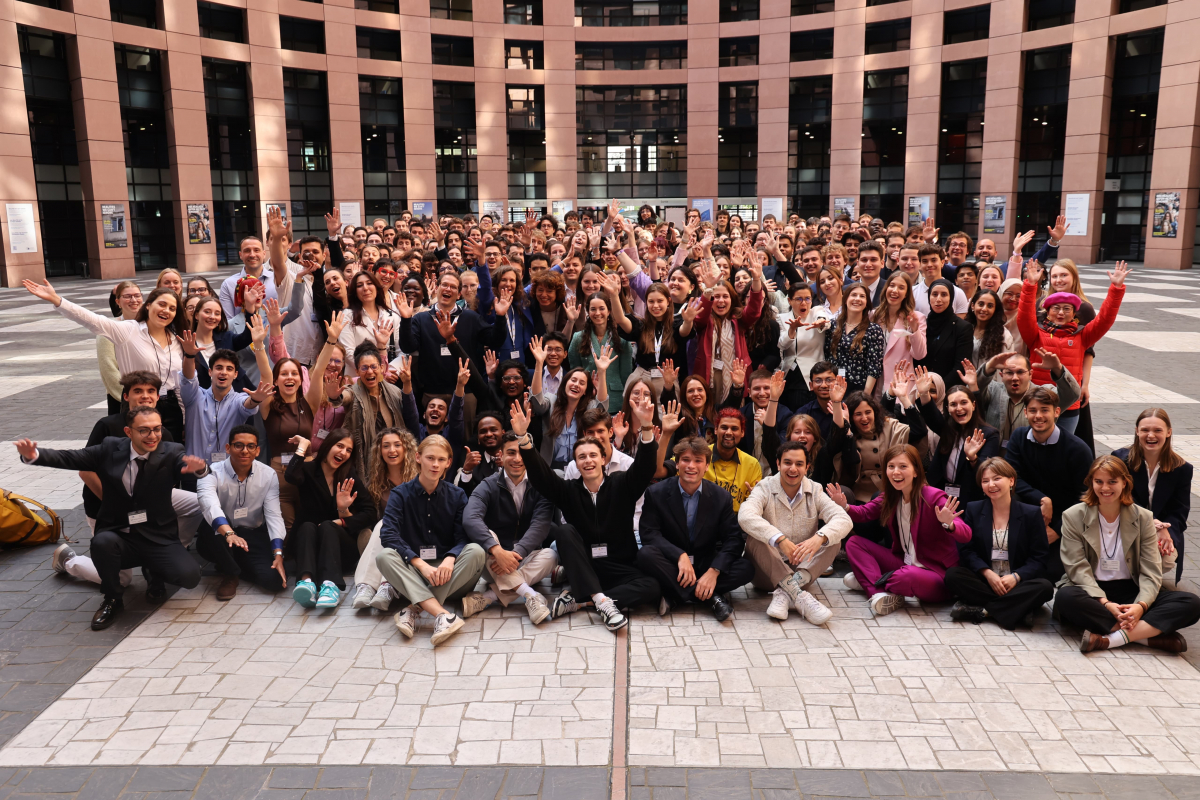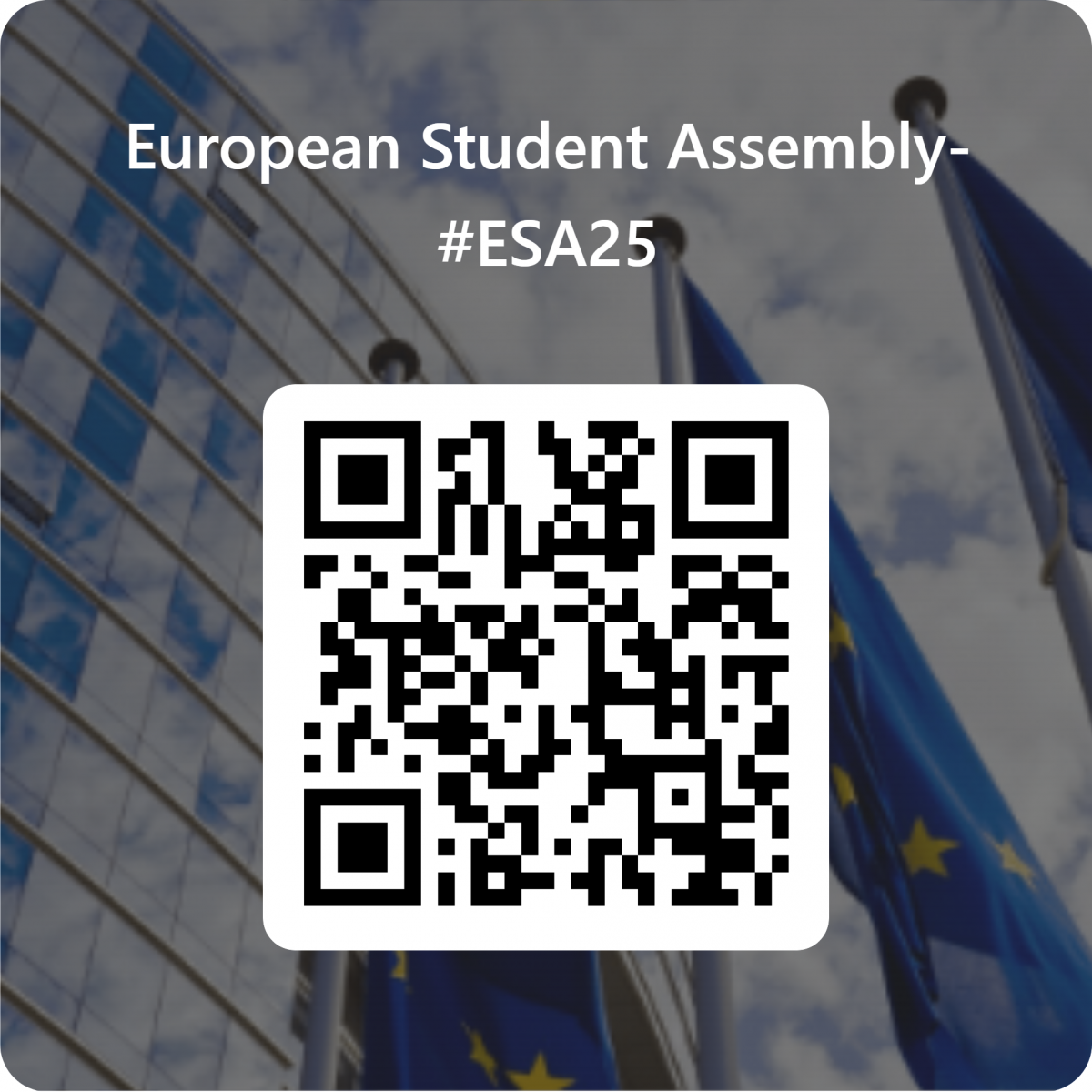
ESA Event Resources
Download the program here
ESA 2025 applications are now closed we have successfully received 2340 applications!
Download ESA 2025 handbook to gain all useful information about this edition!
Click here to download the handbook
Click here to find out if your university is part of the 64 Alliances
Download here ESA2025 application FAQ
The European Student Assembly (ESA) is the flagship initiative of the EUC Voices Erasmus+ project, designed to bring together approximately 250 students from across Europe each year. This dynamic event provides a unique platform for selected European students to delve into essential issues facing the European Union, sparking impactful discussions and fostering intercultural exchange.
Students interested in participating have the opportunity to apply either as participants or coordinators, contributing to one of the Assembly’s discussion panels. The selection process is conducted collaboratively by EUC Voices partners and the European University Alliances, ensuring a transparent and inclusive approach. Selection criteria prioritize students with a passion for European politics, culture, and society, along with a motivation to engage in meaningful dialogue, share their perspectives, and positively impact their communities.
Panel coordinators, who play a central role in facilitating these discussions, are chosen not only for their interest and expertise but also for their experience as leaders in similar initiatives. These coordinators guide conversations that challenge perspectives and inspire new insights into Europe’s most pressing challenges.
Download ESA 2025 Policy Recommendations Handbook
Here are the panels for ESA 2025:
- Panel 1 - Mentally (un)stable. How can the EU help young people manage mental health issues caused by overstimulation?
- Panel 2 - Greener tomorrow. What is the role of climate and environmental policies in higher education and energy?
- Panel 3 - AI, European democracy and civic engagement. How can the EU benefit from Artificial Intelligence in its mission of promoting democracy?
- Panel 4 - Innovation for all. In what ways can the EU balance innovation and competitiveness to support sustainable economic growth?
- Panel 5 - Education beyond graduation. How can the EU promote lifelong learning to prepare its citizens for rapid technological and socioeconomic changes?
- Panel 6 - Living with dignity. What measures should the EU consider to ensure affordable housing for its younger generations?
- Panel 7 - Unveiling inequalities. What are the issues related to the gender pay gap and minorities?
- Panel 8 - Unity in diversity. How can the EU foster cultural understanding and inclusivity in an increasingly diverse Europe?

A GREAT CONTRIBUTION
This year’s edition was made possible also thanks to the invaluable support of the following students, former ESA participants, who contributed through dedicated working groups. Collaborating closely with some partner representatives, they helped develop outreach materials and content aimed at strengthening the project's overall dissemination and visibility:
Students supporting WP2 (name and surname, university alliance, university)
- Bao Huy Nguyen - EUt+ - Darmstadt University of Applied Science
- Carlos Antequera Molina - ARQUS - University of Granada / Centro de Estudios Políticos y Constitucionales
- Chiara Nasonte - ARQUS - Università degli Studi di Padova
- Daniela Marques - EUGLOH - University of Porto
- Lucía López Andrades - OpenEU - Universitat Oberta de Catalunya
- Jeanne de Villeneuve - UFA - Université Paris Dauphine / Goethe Universität Frankfurt am Main (Double Diploma)
- Sarah Fuhrich - EPICUR - University of Freiburg
- Sergio Muñoz -EUGLOH - University of Alcalá
- Zuzanna Siwinska -ERUA - USWPS
Students supporting WP5 (name and surname, university alliance, university)
- Caelinn Cavalli - Una Europa - KU Leuven
- Danel Van Mensel Una Europa - KU Leuven
- Eliza Annovi - 4EU+ - Warsaw School of Economics SGH
- Giulia Parola - FORTHEM - University of Valencia
- Lou Ortega - UNITE- Université Grenoble Alpes
Learn more about the 4th edition here: https://www.eucvoices.eu/it/content/european-student-assembly-2025-three...

